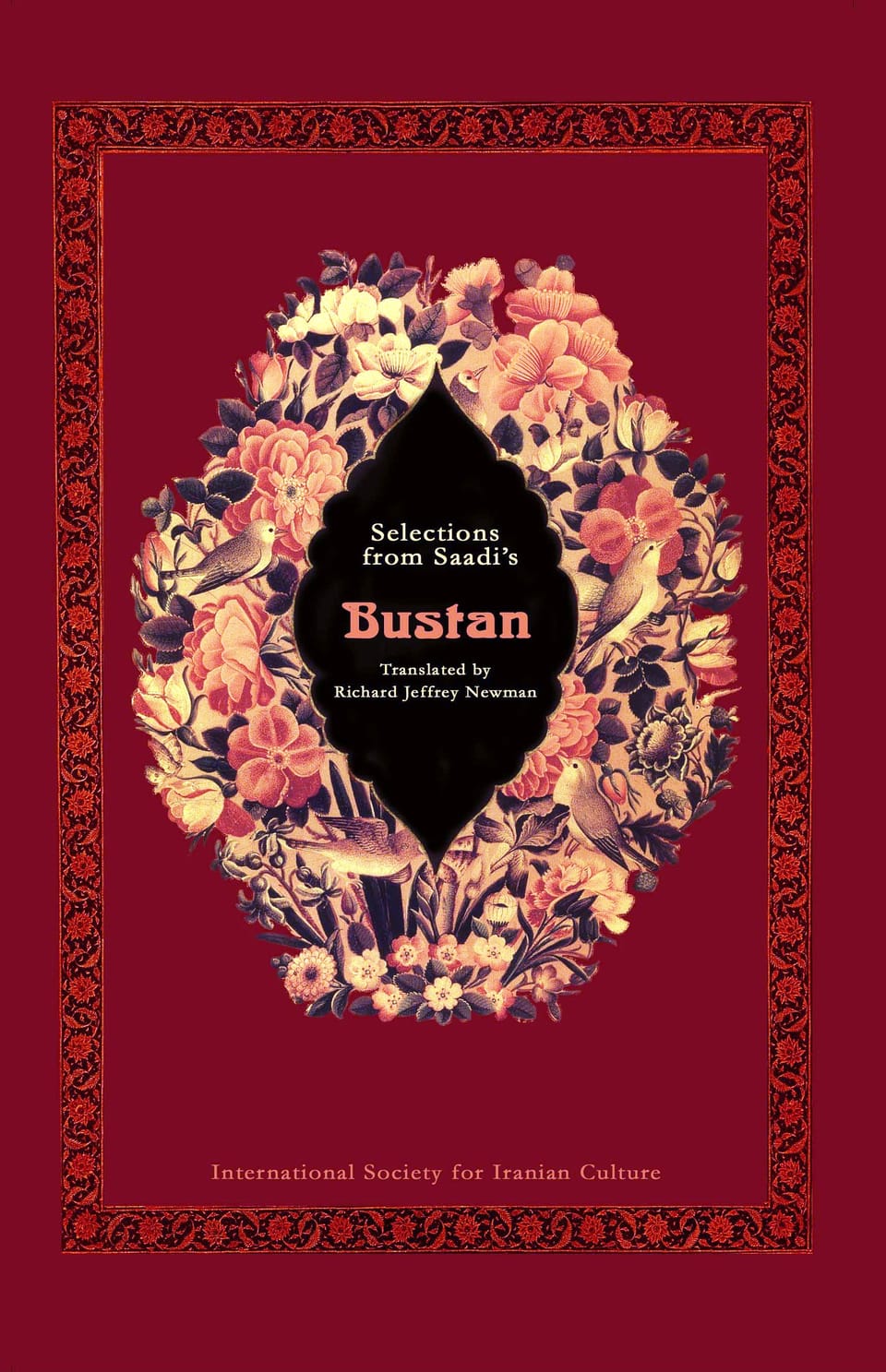
Selections from Saadi’s Bustan (Global Scholarly Publications 2006) is the second book I completed as part the commission I received from the International Society for Iranian Culture. Bustan--the title means Orchard--which Saadi completed in 1257, is part of a literary tradition called andarz, or wisdom literature, which dates back to pre-Islamic Persia. According to scholar John D. Yohannan, what distinguishes Bustan from its predecessors is the belletristic sensibility Saadi brought to his work, evident in the emphasis he places on what Yohannan calls, in The Poet Sa'di: A Persian Humanist, "entertainment and literary delectation." Regarding comparison in English literature, Yohannan suggests the metaphysical poets of the 17th century—he cites Donne in particular—for their love of wit and wordplay, as well as the didactic poets of 18th, like Alexander Pope.
Saadi wrote Bustan entirely in the mutaqarrib rhythm, which most closely resembles anapestic tetrameter in English. In 1882, G. S. Davie published a complete translation of Bustan in that meter, but--and not only because Davie's English is old-fashioned to contemporary ears--his versions begin to sound a little bit like Dr. Seuss after a while, especially if you read them aloud, because his rhymes are all full rhymes, his lines are all end-stopped, and the beats in each line fall with the monotonous regularity of a metronome. I chose blank verse as the meter for my translations because I wanted, first, a music that would at least suggest Pope's heroic couplets and, second, a meter that would allow for greater flexibility should one of Saadi's couplets require more than two lines in English.
Unfortunately, Selections from Saadi's Bustan is out of print, but you can download a free copy of the uncorrected proof here. In return, all I ask is that you consider subscribing to my newsletter, It All Connects.
Reviews
"Having the Bustan in an English translation will finally allow Saadi to take his place beside Rumi and Hafiz and complete the Divine Trinity of Persian poetry...Richard Jeffrey Newman's...text reads clear, story-filled, delightful, striking just the right balance between contemporary and classic. What shines through is Newman’s depth of understanding: there is a wisdom in these pages that makes them sacred, yet there is also a system of ethics that makes them a How To for the Soul, and to tease out these meanings requires a master translator...Having a contemporary translation of the Bustan is an important step in Muslim-US relations, a milestone in literary history."
Bob Holman, founder of The Bowery Poetry Club
It All Connects is for anyone who grapples with complexity—of identity, art-making, culture, or conscience—to make a difference in their own life and, potentially, in the life of their community.
Member discussion